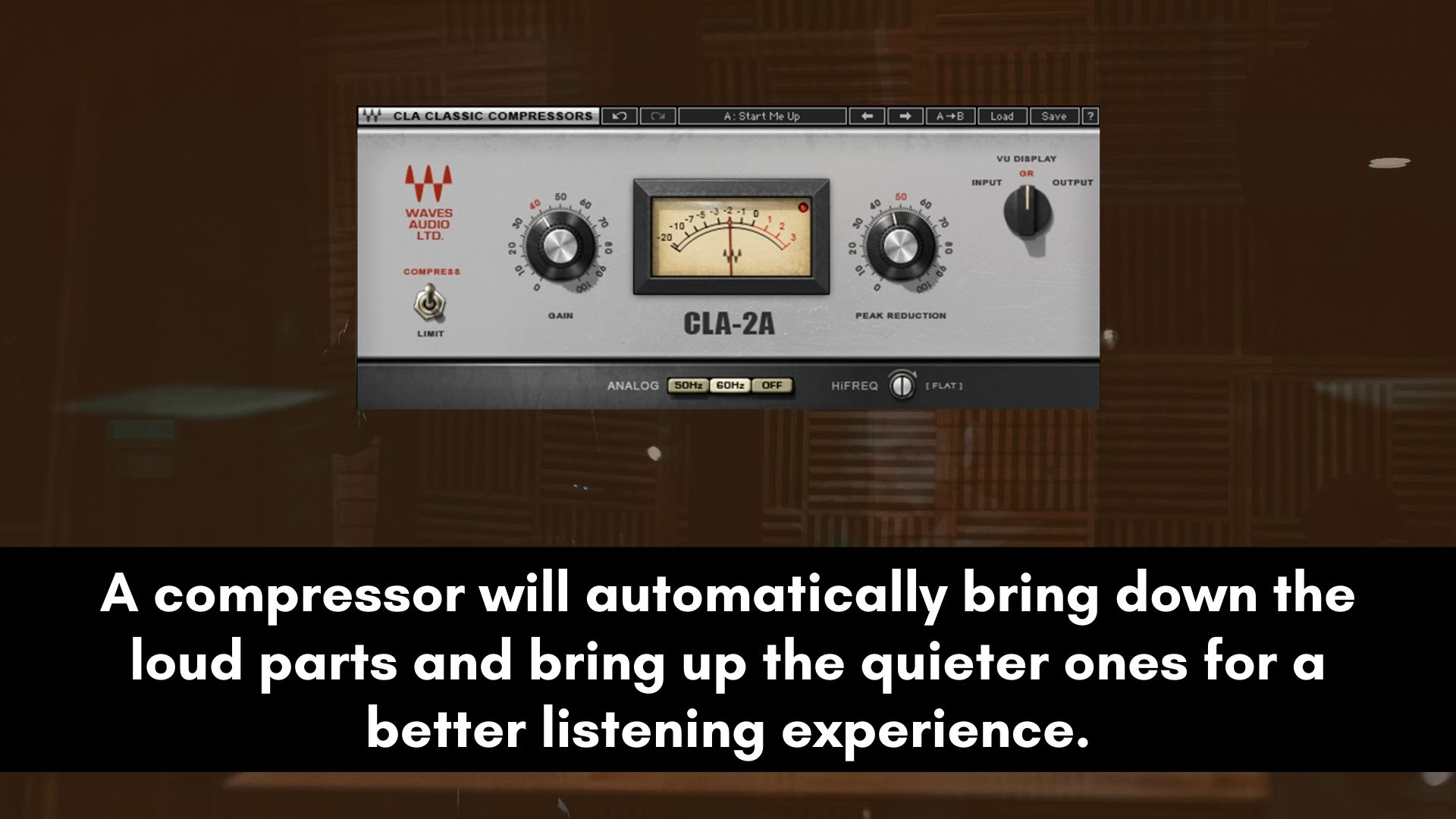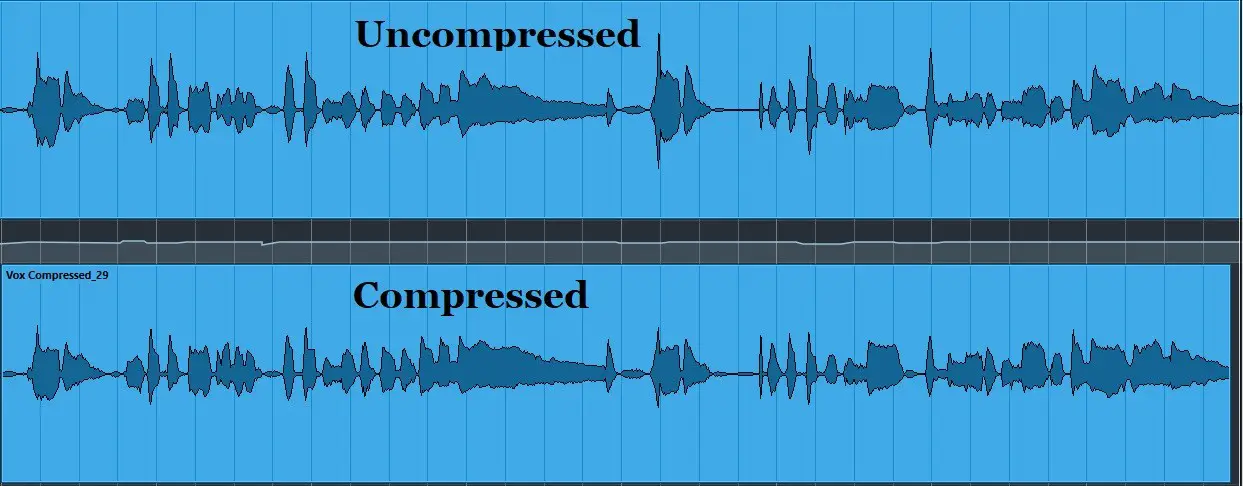Compression is one of the most important tools for recording, production, mixing, and mastering music.
It is used in music and also on radio, film, gaming, etc. to make sure that the volume doesn’t fluctuate but remains consistent.
These days, streaming services are now implementing compression to ensure that the consumer gets a great experience without reaching for the volume control.
So, compression is very crucial when it comes to keeping audio sounding consistent.
Is Compression Good On Vocals?

Compression can be a great way to control the dynamics of a vocal track. It can help to make the vocals sound more consistent from beginning to end, and it can also add some extra power and presence.
However, compression should be used sparingly, and it's important to be careful not to over-compress the vocals.
When compression is overdone, it can make the track sound squashed, too thin, and unnatural.
There is a lot of compression on vocals in the music industry today. Some people argue that it makes the vocals sound stale or lifeless.
Others argue that it has a modern sound and can be extremely pleasing to the ear. There are studies that show that compression makes vocals louder and more uniform.
From my experience, those who say it’s not good on vocals are using it wrong.
There’s no way that one can record a voice and keep the volume consistent throughout the entire performance (this includes voiceovers, spoken word, rap, etc.).
So, since a vocal recording has dynamics (loud and soft parts), an audio engineer can use a compressor to control the dynamics.
A compressor will automatically bring down the loud parts and bring up the quieter ones for a better listening experience.
Do Vocals Always Need Compression
Due to their dynamic nature, vocals typically need compression.
The point is that with most tracks, vocals need some form of compression to create a smooth, consistent sound that's pleasing to the ear.
Here’s a visual example of an uncompressed vocal vs a compressed one.

As you can see, the vocal part at the top is too dynamic. Some words are louder while some are quieter.
So on a song (with other instruments playing), it becomes hard to hear certain words.
But on the second vocal track (this is the compressed part), you can see that the words are now consistent in volume.
The goal is not to have all the waveforms equal, that will sound over-compressed and unnatural.
Making the waveforms equal in volume will kill the life out of a good vocal performance, it will sound robotic and weird to the listener.
With compression, the voice will have more energy, clarity, presence, and dynamic control. So, vocals always need compression to give the listener a good experience.
Wrap Up
Having your vocals compressed is always a good thing.
Without the use of compression, the voice will keep fluctuating and give the listener a bad listening experience.
If for some reason you don’t understand how a compressor works then check out some of my previous posts where I go into detail about getting the right settings all the time.
Remember not to squash the voice to a point where it sounds unnatural. Your goal should be getting the words to be audible from start to finish.
Leave a comment below to let me know if this post gives you more courage to start applying compression on your vocals.
Also, feel free to post your questions in the comment box and I’ll definitely get back to you.
